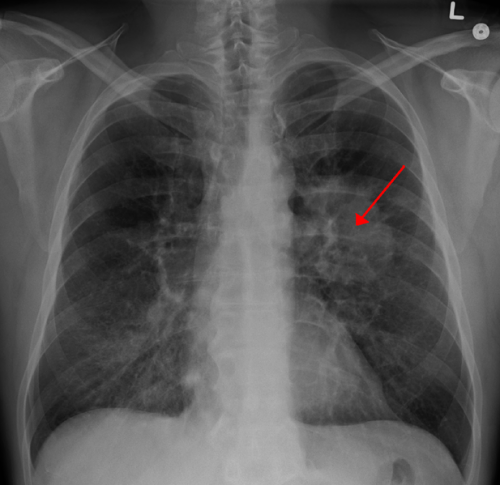#Team develops non-invasive approach to predict outcomes in lung cancer

“#Team develops non-invasive approach to predict outcomes in lung cancer”

Tests that analyze biomarkers are used during cancer management to guide treatment and provide information about patient prognosis. These tests are often performed on tissue biopsy samples that require invasive procedures and can lead to significant side effects. In a new article published in the Journal for ImmunoTherapy of Cancer, Moffitt Cancer Center researchers show that PET/CT images can be used to measure levels of the PD-L1 biomarker of non-small cell lung cancer (NSCLC) patients in a non-invasive manner and, in turn, predict a patient’s response to therapy.
Checkpoint inhibitors, drugs used to reactive the immune system by targeting the PD1/PD-L1 signaling pathway, are commonly used to treat patients with NSCLC. While this type of therapy has greatly improved patient outcomes, it only works for roughly half of this patient population. To avoid treating those who may not respond, checkpoint inhibitor therapy is often limited to patients whose surgical biopsy specimen is shown to express the PD-L1 biomarker. However, performing an invasive surgery is associated with inherent risks, and occasionally the biopsy sample is not adequate to perform diagnostic testing or the testing procedure itself may fail. Therefore, researchers are trying to develop alternative strategies to identify patients who should be treated with targeted agents such as checkpoint inhibitors.
Moffitt researchers wanted to take advantage of the capabilities of computer deep learning to develop a new framework to measure PD-L1 biomarker levels in NSCLC patients in a non-invasive manner. They chose to use features of PET/CT scan images, such as shape, size, pixel intensity and textures to train computers to measure PD-L1 expression. They developed a deep learning score to predict PD-L1 expression, and after validation through different patient cohorts were able to use their model to predict checkpoint inhibitor outcomes in NSCLC patients.
“These data demonstrate the feasibility of using an alternative non-invasive approach to predict expression of PD-L1,” said Matthew Schabath, Ph.D., associate member of the Cancer Epidemiology Department. “This approach could help physicians determine optimum treatment strategies for their patients, especially when tissue samples are not available or when common testing approaches for PD-L1 fail.”
“This study is important, as it is the single largest multi-institutional radiomic study population of NSCLC patients to date treated with immunotherapy to predict PD-L1 status and subsequent treatment response using PET/CT scans,” said Robert Gillies, Ph.D., chair of the Department of Cancer Physiology at Moffitt. “Because images are routinely obtained and are not subject to sampling bias per se, we propose that the individualized risk assessment information provided by these analyses may be useful as a future clinical decision support tool pending larger prospective trials.”
Researchers develop tool to better predict treatment course for lung cancer
Wei Mu et al, Non-invasive measurement of PD-L1 status and prediction of immunotherapy response using deep learning of PET/CT images, Journal for ImmunoTherapy of Cancer (2021). DOI: 10.1136/jitc-2020-002118
Citation:
Team develops non-invasive approach to predict outcomes in lung cancer (2021, June 17)
retrieved 18 June 2021
from https://medicalxpress.com/news/2021-06-team-non-invasive-approach-outcomes-lung.html
This document is subject to copyright. Apart from any fair dealing for the purpose of private study or research, no
part may be reproduced without the written permission. The content is provided for information purposes only.
If you liked the article, do not forget to share it with your friends. Follow us on Google News too, click on the star and choose us from your favorites.
For forums sites go to Forum.BuradaBiliyorum.Com
If you want to read more Like this articles, you can visit our Science category.




